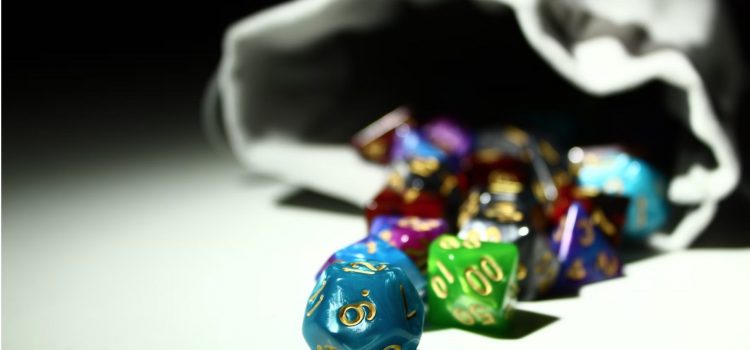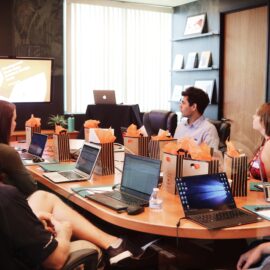
This is a free excerpt from one of Shortform’s Articles. We give you all the important information you need to know about current events and more.
Don't miss out on the whole story. Sign up for a free trial here .
What is the OGL 1.1 leak? Why are people boycotting Wizards of the Coast?
A recent leak of possible updates to the Open Gaming License (OGL) owned by Wizards of the Coast sparked outrage across the tabletop gaming community. Though Wizards has since announced that it will not change the OGL, the debacle could weaken its position in the tabletop gaming market.
Read on to learn more about the OGL 1.1 leak and the overall Wizards of the Coast controversy.
The OGL 1.1 Leak Explained
Wizards of the Coast—one of the world’s largest tabletop game publishers, best known for Magic: the Gathering and Dungeons & Dragons (commonly abbreviated as D&D or DnD)—came under fire recently after a leak revealed some planned updates to its Open Game License (OGL). The customer backlash to the OGL 1.1 leak was so strong that, just a month after the original leak, Wizards of the Coast promised not to update the OGL.
This article will explain what the Open Gaming License is, what Wizards hoped to change with the OGL 1.1 as compared to the original 1.0, and why the leak brought about so much backlash.
What Is the Open Game License (OGL)?
The OGL is an open contract from Wizards of the Coast (WOTC). The contract allows people to publish and sell 3rd party content for Dungeons & Dragons, or create derivative works of it, so long as whatever they publish can also be copied, modified, and redistributed—this is called a ShareAlike license.
Leaked Update: OGL 1.1
The OGL 1.0 is a pretty straightforward document: You can freely use any of the content covered by it (collectively called Open Game Content, or OGC), and in return, whatever you create also becomes OGC. So what was in the OGL 1.1 leak that caused such an uproar?
First, and most importantly, this new license would have replaced the OGL 1.0, so any new products using D&D content would have to abide by the new terms. Wizards of the Coast said that the impacts on game designers and publishers would be minimal, but some people believe this section of the OGL 1.1 was an attempt to sabotage their biggest competitors.
Second, the OGL 1.1 gave WOTC the ability to revoke the license with any individual or company at will. Supposedly, this provision existed to keep objectionable material off the market—for example, explicitly racist or homophobic content. However, the new license gave WOTC sole discretion in such cases, meaning that it could theoretically deny a developer the right to use Open Game Content at any time, for any reason.
Thirdly, the new OGL made it much clearer what type of content would be covered by the license and what would not. Namely, printed media and static files (like PDFs and Word documents) would be covered by OGL 1.1, while anything else (videos, podcasts, and so on) would not.
Finally, developers would have had to register any products using the OGL 1.1 with Wizards of the Coast, and report their gross income from those products each year. They would also have had to pay 25% royalties on any income over $750,000, though WOTC estimated that fewer than 20 companies would end up owing royalties in any given year.
The full text of the now-scrapped OGL 1.1 leak can be found here.
Customer Backlash
The OGL 1.1 leak, first reported on by Gizmodo, sparked outrage across the entire tabletop gaming community. Many argued that the OGL, and the huge amount of content that uses it, is in large part responsible for D&D’s success in the first place. Therefore, retracting it now comes off as hypocritical and cutthroat—it seems like WOTC is “pulling the ladder up behind it,” so to speak.
Furthermore, many of those who disapproved of the OGL 1.1 decided to let their money speak for them: Tabletop RPG publishers Paizo (Pathfinder) and Chaosium (Call of Cthulhu) report selling months’ worth of product in just a few weeks as people look for alternatives to D&D.
In response to the backlash, WOTC sent out a survey looking for customer feedback. They received more than 15,000 responses, almost 90% of which disapproved of changing the OGL in any way.
Wizards Walks Back Its Decision
Following the OGL 1.1 leak, WOTC announced that it will not change the OGL at this time, and will seek player feedback before making any changes in the future. As a further gesture of goodwill, the company is putting D&D’s current Source Reference Document (SRD) under Creative Commons license. In simple terms, this means Wizards can never revoke the right to use any of the material in that SRD—the company doesn’t own the document anymore, and therefore can’t control what others do with it. Those who were opposed to the OGL changes consider this announcement as a win for players and publishers alike.
However, the long-term effects of the whole debacle remain to be seen. WOTC has lost a lot of goodwill and (potentially) a lot of customers, as the comments on any post about the subject demonstrate. With Paizo rallying publishers to its new ORC, this loss of faith could potentially weaken Wizards’ dominance, and lead to other publishers seizing a larger share of the tabletop gaming market.

Want to fast-track your learning? With Shortform, you’ll gain insights you won't find anywhere else .
Here's what you’ll get when you sign up for Shortform :
- Complicated ideas explained in simple and concise ways
- Smart analysis that connects what you’re reading to other key concepts
- Writing with zero fluff because we know how important your time is






